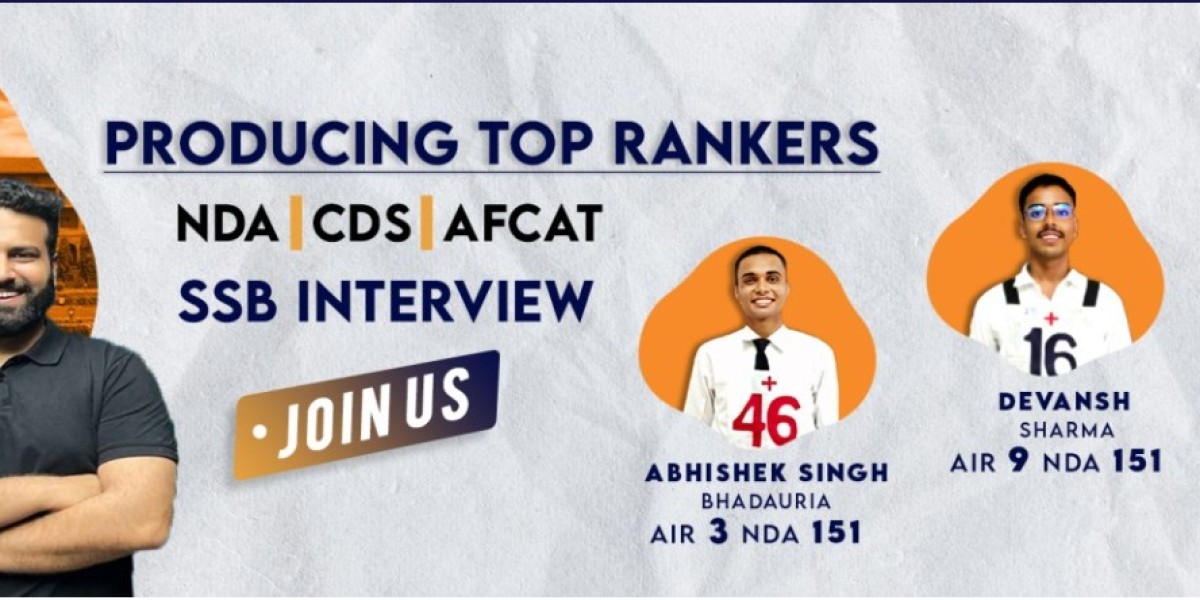Preparing for the SSB (Services Selection Board) interview is not just about knowledge — it’s about personality, perception, and precision. Unlike typical job interviews, the SSB process is a rigorous five-day assessment designed to evaluate a candidate's Officer-Like Qualities (OLQs). For many aspirants, cracking this challenging interview seems daunting — but with the right coaching and approach, success is within reach.
In this article, we’ll uncover the best coaching tips, strategies, and answer keys to help you crack the SSB interview and walk in with confidence. We'll also explore some of the best SSB questions for interview that frequently surface during the various stages of the process.
Understanding the SSB Interview Format
Before jumping into coaching strategies, it’s essential to understand the structure. The SSB interview process spans five days and includes:
Screening Test (Day 1) – Includes the Officer Intelligence Rating (OIR) test and Picture Perception and Discussion Test (PPDT).
Psychological Tests (Day 2) – TAT, WAT, SRT, and SDT.
Group Testing Officer Tasks (Day 3 & 4) – Group discussions, group planning exercise, progressive group task, command task, and individual obstacles.
Personal Interview – Conducted on any of the GTO days.
Conference (Day 5) – A final collective evaluation.
Each stage tests mental strength, leadership, communication, and behavior under pressure — which makes focused coaching crucial.
Why Coaching Matters for SSB Preparation
While self-study has its merits, SSB coaching can accelerate learning and enhance your preparation in three major ways:
Structured Feedback: Experienced coaches can pinpoint weaknesses in your psychology, communication, or performance.
Mock Interviews: Simulated sessions provide hands-on experience and reduce real-time pressure.
Mentorship: Coaches who've cleared the process (often ex-armed forces personnel) share practical insights and exam trends.
Let’s explore the most effective coaching strategies that make a real difference.
Top Coaching Tips to Crack the SSB Interview
1. Master the Best SSB Questions for Interview
A core part of coaching revolves around practicing and perfecting responses to the best SSB questions for interview, such as:
“Tell me about yourself.”
“Why do you want to join the armed forces?”
“What are your strengths and weaknesses?”
“Tell us about a time you faced failure. How did you respond?”
“Who is your role model and why?”
“What do your friends and family think about you?”
✅ Coaching Tip: Don’t memorize responses. Instead, develop a personal story bank to respond naturally. Good coaching helps you refine these answers for authenticity and clarity.
2. Understand the OLQs
Coaching focuses on developing and demonstrating Officer-Like Qualities, which include:
Effective Intelligence
Reasoning Ability
Social Adaptability
Cooperation
Stamina
Courage
Responsibility
Initiative
Self-confidence
A trained coach will guide you on how to demonstrate these traits during group tasks, interviews, and psychology tests.
3. Improve Communication Skills
Whether it’s a group discussion or a personal interview, communication is key. Coaching sessions often include:
Public speaking practice
Group discussion drills
Body language feedback
✅ Pro Tip: Record yourself answering the best SSB questions for interview. Watch to spot hesitation, lack of clarity, or nervous gestures. Coaching institutes often do this for you.
4. Build a Strong Self-Description Test (SDT)
The SDT asks you to write about what your parents, friends, teachers, and you think about yourself. Coaching helps align your SDT with your actual personality and OLQs.
✅ Coaching Advice: Avoid exaggerations. Coaches help you strike the right tone of humility and confidence while sticking to the truth.
5. Simulate the GTO Tasks
GTO tasks like Command Task or Progressive Group Task are difficult to prepare for alone. Good coaching centres replicate these tasks physically to help you:
Develop leadership
Stay calm under stress
Learn how to interact with peers
You’ll also get real-time coaching on when to take initiative and when to cooperate.
6. Psychological Test Training
Psychological tests (TAT, WAT, SRT) are where many candidates get screened out. Good coaching helps you:
Write stories that reflect OLQs
Practice word association for WAT
Handle SRTs under time pressure
✅ Example: For WAT, if the word is “Failure,” your response could be: “Failure teaches better than success.” This subtly demonstrates resilience — an OLQ.
7. Mock Personal Interviews
This is where you face the best SSB questions for interview, often framed unpredictably by the Interviewing Officer (IO). Coaching prepares you with:
Situational questions (What if…?)
Background checks based on your PIQ form
Cross-questioning and pressure handling
The best SSB interview coaching will also analyze your answers and suggest more polished alternatives.
Common Mistakes That Coaching Helps Avoid
Over-preparing canned answers: Coaching teaches flexibility in responses.
Ignoring the PIQ form: Everything in your interview will come from this form.
Faking qualities: Good coaching focuses on developing real strengths.
Neglecting physical fitness: Many GTO tasks require strength and stamina.
Best SSB Questions for Interview: Quick List for Practice
Here’s a compiled list of some frequently asked and best SSB questions for interview to include in your coaching sessions:
What did you learn from your last failure?
How do you handle criticism?
What are your hobbies and how do they shape your personality?
Describe a situation where you showed leadership.
What’s your daily routine?
If not the Armed Forces, what would you do?
How do you plan your time and priorities?
Include these in mock interviews and written practice sessions. A coach will help you refine and align your responses to the SSB standards.
Conclusion: Coaching Is Not a Shortcut—It’s a Strategy
Cracking the SSB interview requires more than academic brilliance. It demands emotional intelligence, presence of mind, and integrity. That’s where coaching bridges the gap — by simulating real conditions, sharpening your responses, and building your character. By focusing on OLQs, improving your psychology responses, mastering the best SSB questions for interview, and honing communication skills, coaching offers a structured path to success. If you’re serious about joining the armed forces, invest your time in quality coaching and disciplined preparation. When you walk into the SSB center, you won’t just be a candidate — you’ll be a future officer in the making.






